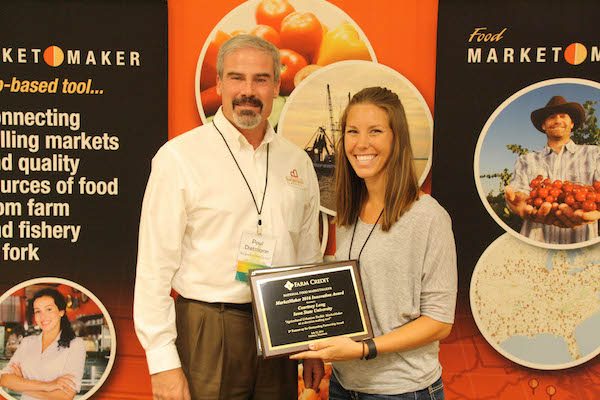
From the “Farmer to Farmer Podcast” with Chris Blanchard
Paul is a Senior Lending Officer of Mission Financing at Compeer Financial. His primary role at Compeer is to provide loans and other assistance to emerging market farmers in southern Wisconsin and northern Illinois. He spent 11 years as county agriculture agent and department head with UW-Extension in Sauk County, WI, and served 5 year as Director of the Bureau of Farm and Rural Services at the WI Department of Agriculture. Paul received his Bachelor’s degree in agricultural economics from the University of Illinois at Urbana–Campaign, and his Master’s degree in continuing and vocational education from the University of Wisconsin–Madison.
Paul is also the co-author of the book, Fearless Farm Finances, released in partnership with the Midwest Organic & Sustainable Education Service (MOSES) to serve as a reference for all things financial relating to farming enterprises and a farmer-friendly textbook for use in training by him and others across the country. He is particularly excited to see more young people interested in farming and their willingness to learn the financial side of farming in order to be successful.
He says that the single most important thing that you’ll do with starting a farm is doing a month-by-month cash flow projection. In the short term, cash flow is much more critical than profitability, because if your cash flow is negative, you can’t survive for very many months. Profitability comes into play when you’re ready to retire or pass it on to the next generation. If the farm hasn’t been profitable, the next generation isn’t going to be able to buy the assets at market value.
He also cautions that land can be a good investment, but you might be setting yourself up with a lot of overhead expense before you have your sales established. Lots of beginning farmers try to get going as quickly as they can, and they overlook the fact that they should have some working capital built up before they get started. If they don’t, and something goes wrong, they’re sunk.
He advocates setting your quality of life goals first, because it’s easy to set your business goals and then your quality of life goes out the window as you try to meet your business goals. In addition, he advocates taking a look at opportunities to partner with somebody, whether it’s an experienced farmer or a social-impact investor, when considering capitalizing their farm.


